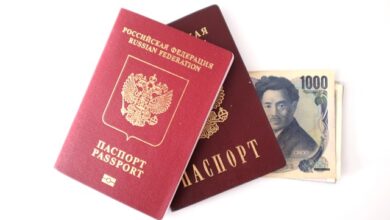How to Retire in France as a Foreigner

Retiring in France is a dream for many, thanks to its rich culture, stunning landscapes, world-class healthcare, and high quality of life. Whether you’re drawn to the sun-soaked beaches of the French Riviera, the rolling vineyards of Bordeaux, or the charming villages of Provence, retiring in France offers an idyllic lifestyle. However, moving to a new country requires careful planning, especially when it comes to visas, finances, healthcare, and adapting to a new culture. Here’s a comprehensive guide to help you navigate the process of retiring in France as a foreigner.
1. Determine Your Eligibility
Before making any plans, ensure that you meet the requirements to retire in France as a non-EU citizen. The French government has specific visa and residency rules for retirees.
- Visa Requirements: Non-European Union (EU) citizens need a long-stay visa (visa de long séjour ) to live in France. For retirees, this typically falls under the “retired/sufficient resources” category.
- Proof of Income: You must demonstrate stable and sufficient financial resources to support yourself without working in France. This could include pensions, retirement accounts, investments, or rental income.
- Health Insurance: You’ll need to show proof of health insurance coverage, either through private insurance or eligibility for French public healthcare.
- Clean Criminal Record: A background check may be required as part of the visa application process.
- EU/EEA/Swiss Citizens: If you’re from the European Economic Area (EEA) or Switzerland, you don’t need a visa to retire in France. However, you must register with the local authorities after three months of residence.
2. Secure Your Finances
Financial stability is crucial for a smooth transition to retirement in France.
- Cost of Living: France’s cost of living varies significantly by region. Cities like Paris and Lyon are more expensive, while rural areas and smaller towns offer a lower cost of living.
- Housing: Rent or buy property based on your budget. Popular retirement destinations include Nice, Toulouse, Montpellier, and Dordogne.
- Daily Expenses: Factor in groceries, utilities, transportation, and leisure activities. On average, retirees should budget between €1,500–€3,000 per month, depending on lifestyle and location.
- Currency Exchange: If your pension or savings are in a foreign currency, consider setting up a French bank account to manage expenses and avoid excessive exchange fees.
- Tax Considerations: France taxes worldwide income for residents. Consult a tax advisor to understand how your pension, Social Security benefits, or other income sources will be taxed. Some countries have double taxation treaties with France, which can reduce your tax burden.
3. Apply for a Long-Stay Visa
As a non-EU retiree, you’ll need to apply for a long-stay visa at the French consulate in your home country before moving.
- Documents Required:
- Completed visa application form
- Valid passport
- Proof of sufficient financial resources (e.g., pension statements, bank statements)
- Health insurance documentation
- Proof of accommodation in France (rental agreement or property deed)
- Background check/criminal record clearance
- Residency Permit: After arriving in France, you must validate your visa online within three months and apply for a carte de séjour (residence permit). This card allows you to stay legally in France for one year and can be renewed annually.
4. Access Healthcare
France boasts one of the best healthcare systems in the world, and retirees can benefit from it under certain conditions.
- Public Healthcare System (Sécurité Sociale):
- To access state healthcare, you must contribute to the French social security system. As a retiree, this often involves proving sufficient income and paying into the system via taxes.
- EU/EEA/Swiss citizens can use their European Health Insurance Card (EHIC) temporarily while arranging permanent coverage.
- Private Health Insurance:
- Non-EU retirees may need private health insurance initially. Once eligible, they can join the public system.
- Supplemental insurance (mutuelle ) is common in France to cover additional costs not fully reimbursed by the public system.
- Prescription Medications and Services: Prescription drugs and medical services are heavily subsidized, making healthcare affordable for retirees.
5. Choose Your Ideal Location
France offers diverse regions, each with its own charm and advantages for retirees.
- Provence-Alpes-Côte d’Azur: Known for its Mediterranean climate, lavender fields, and historic towns like Aix-en-Provence and Nice.
- Southwest France: Famous for its wine regions (Bordeaux, Dordogne), relaxed pace of life, and affordable real estate.
- Normandy and Brittany: Picturesque coastal areas with mild weather, seafood cuisine, and rich history.
- Paris and Surroundings: Perfect for those who love urban living, culture, and proximity to iconic landmarks.
- Corsica: An island paradise for nature lovers seeking tranquility and outdoor adventures.
6. Learn the Language
While many French people speak English, especially in tourist areas, learning French will enhance your experience and help you integrate into society.
- Language Classes: Enroll in French courses offered by local schools or organizations like Alliance Française.
- Practice Daily: Engage with locals, watch French TV shows, and practice conversational skills regularly.
- Cultural Understanding: Knowing the language also helps you navigate administrative tasks, shop confidently, and build friendships.
7. Adapt to French Culture
Embracing French customs and traditions will make your retirement more enjoyable and fulfilling.
- Social Etiquette: Greet people with “Bonjour” and use formal titles until invited to do otherwise. Respect personal space and dining etiquette.
- Leisure Activities: Join clubs, attend cultural events, or participate in local festivals to connect with the community.
- Work-Life Balance: Embrace the slower pace of life, long lunches, and emphasis on enjoying moments with family and friends.
8. Plan for Legal and Administrative Tasks
Settling into France involves handling various administrative responsibilities.
- Open a Bank Account: Choose a reputable French bank and provide necessary documents, such as proof of address and ID.
- Register with Local Authorities: File for residency permits, update your address, and obtain a numéro de sécurité sociale (social security number).
- Understand Tax Obligations: Declare your global income to French tax authorities and seek advice on minimizing tax liabilities.
9. Stay Connected with Family and Friends
Maintaining ties with loved ones back home is important for emotional well-being.
- Technology: Use video calls, messaging apps, and emails to stay in touch.
- Travel: France’s central location in Europe makes it easy to visit family or host guests.
10. Enjoy Your Retirement
Once settled, take full advantage of everything France has to offer.
- Explore the Countryside: Discover hidden gems, hike scenic trails, and indulge in regional cuisines.
- Pursue Hobbies: Take up painting, cooking classes, gardening, or photography.
- Volunteer: Give back to the community by volunteering for local charities or organizations.



